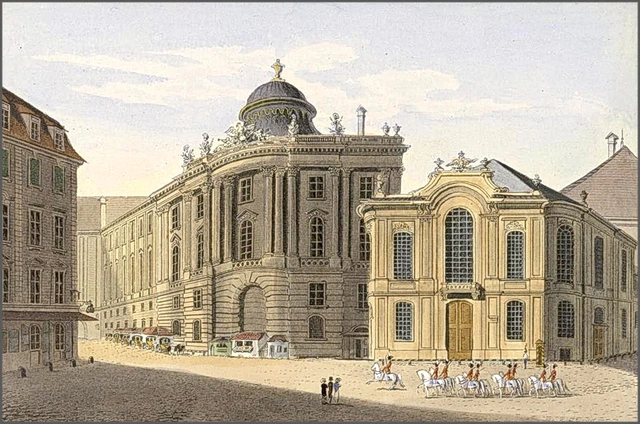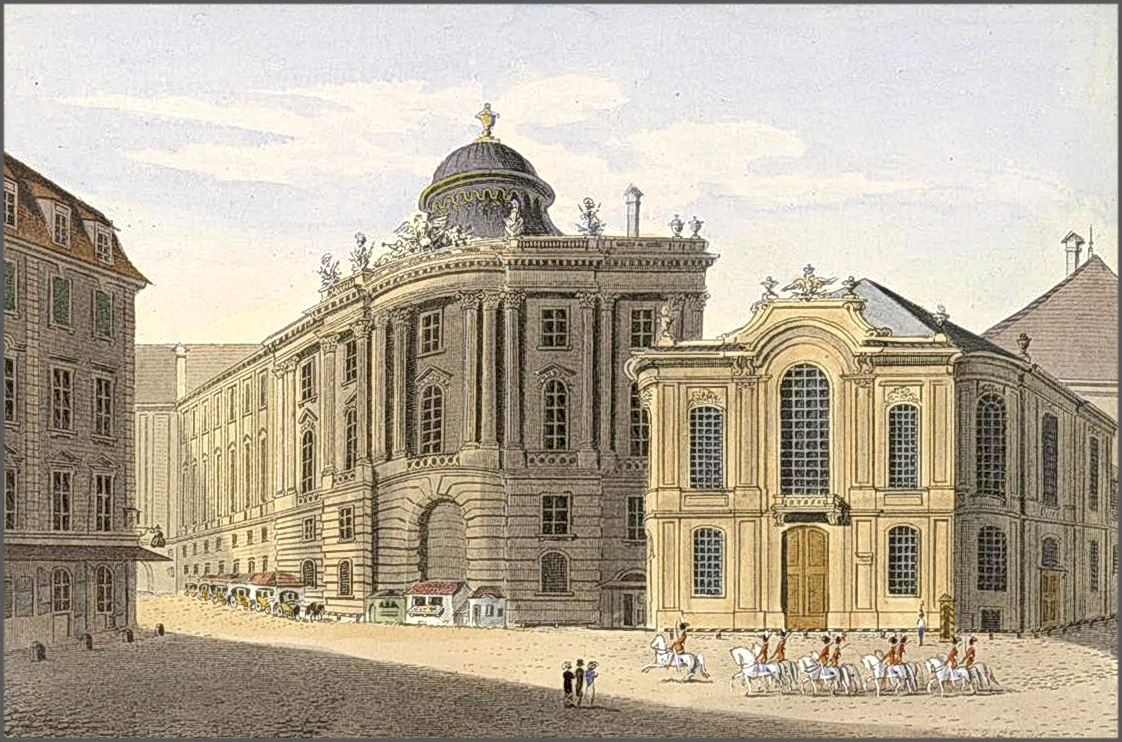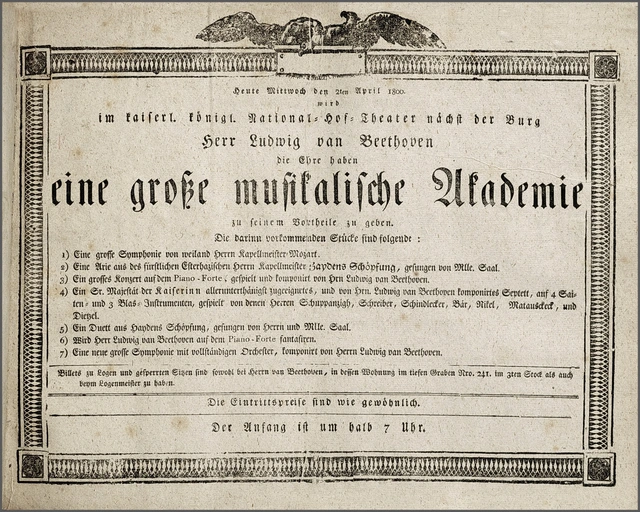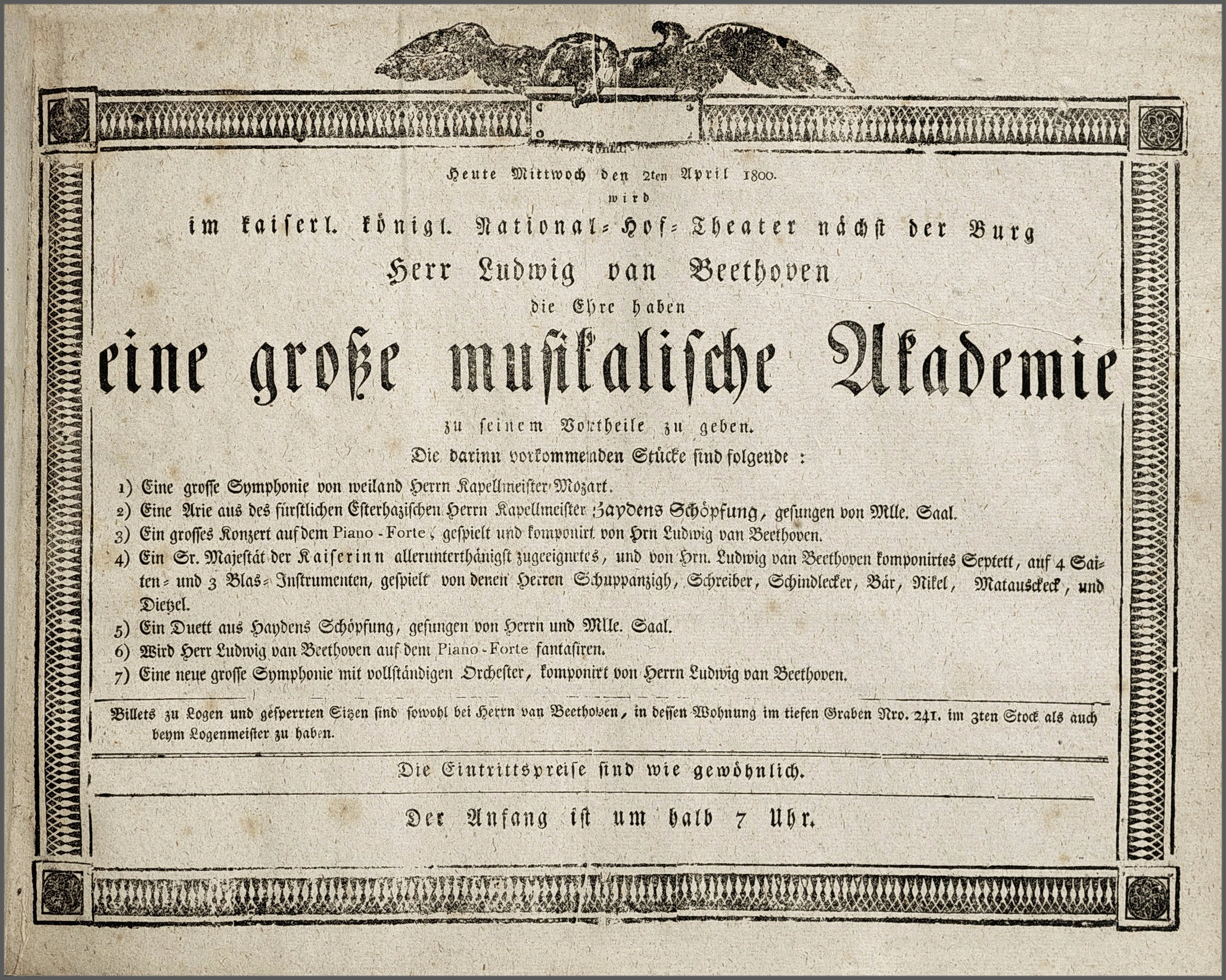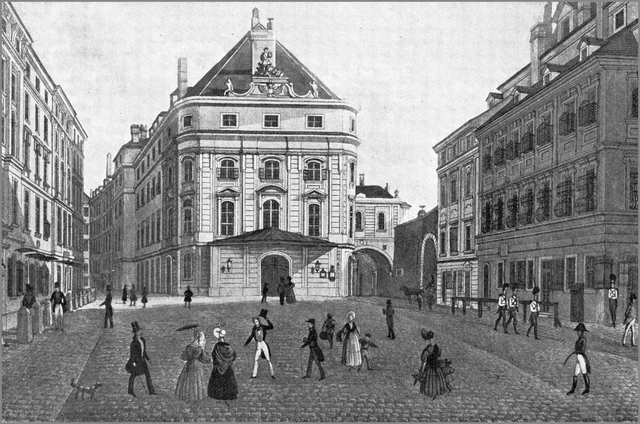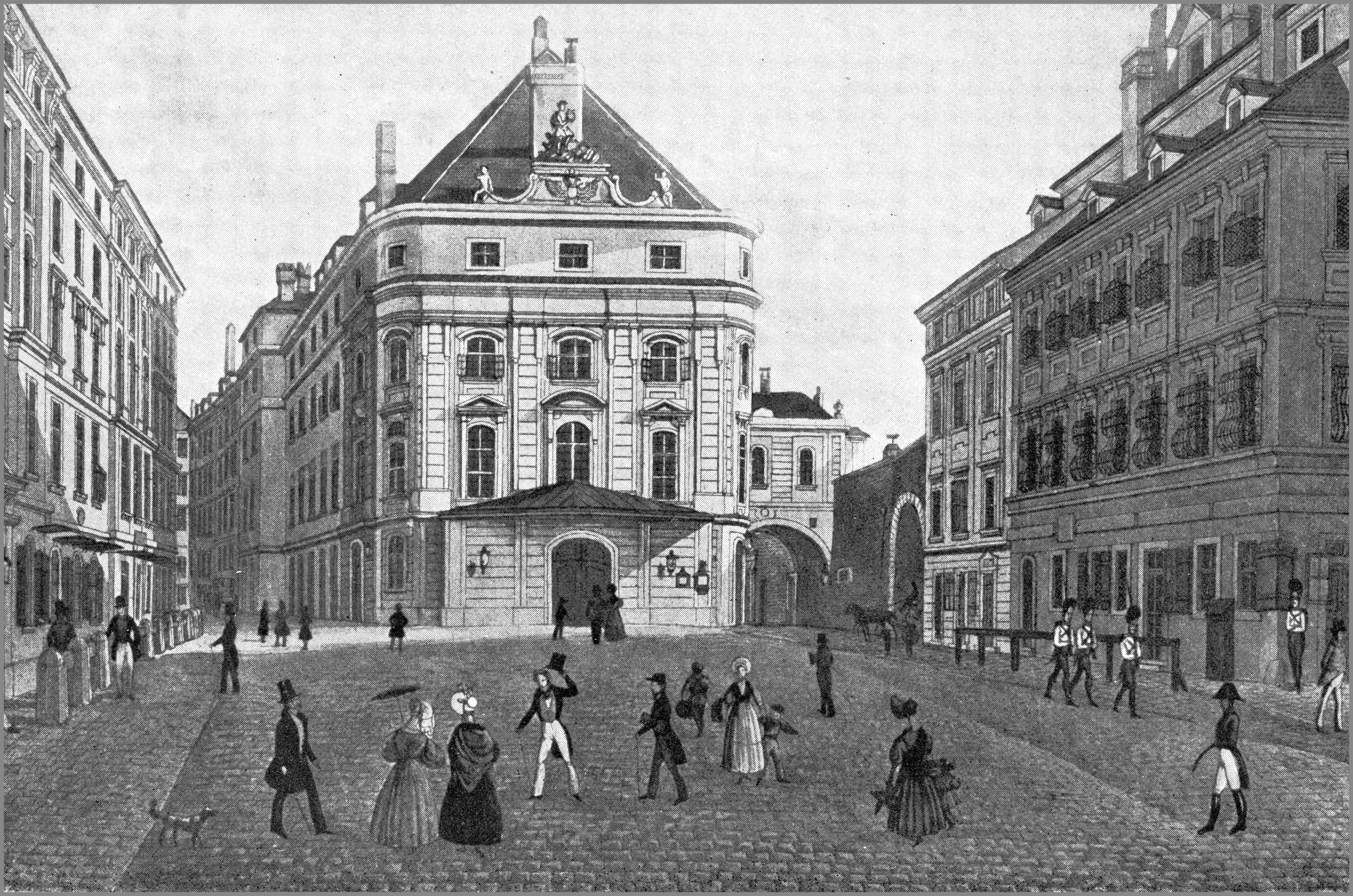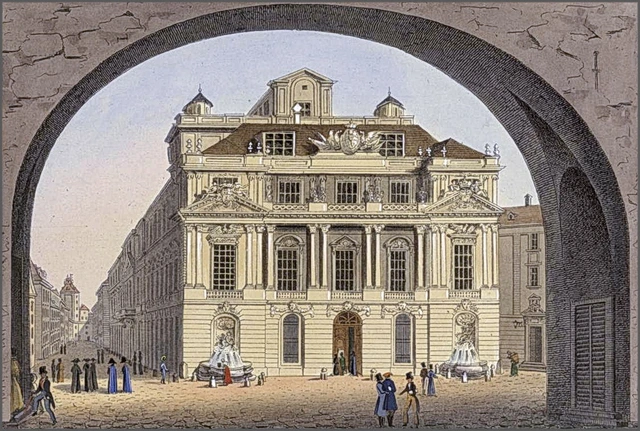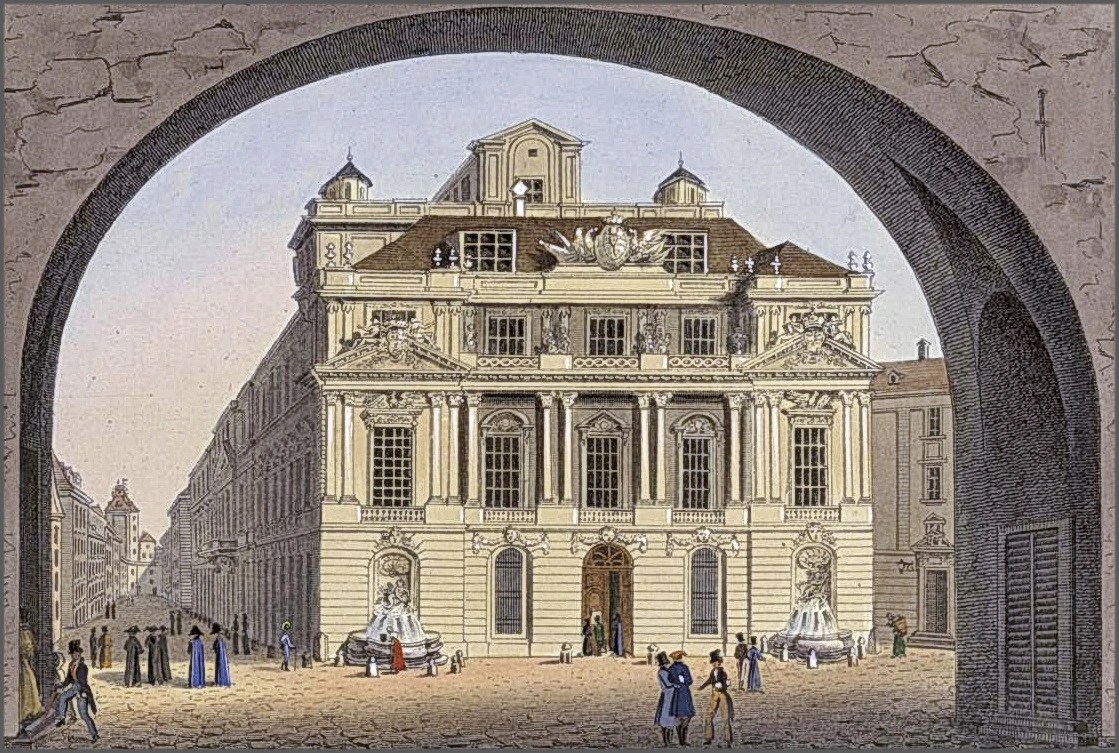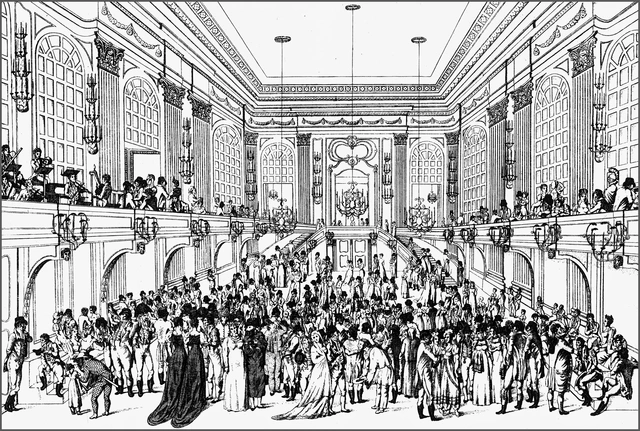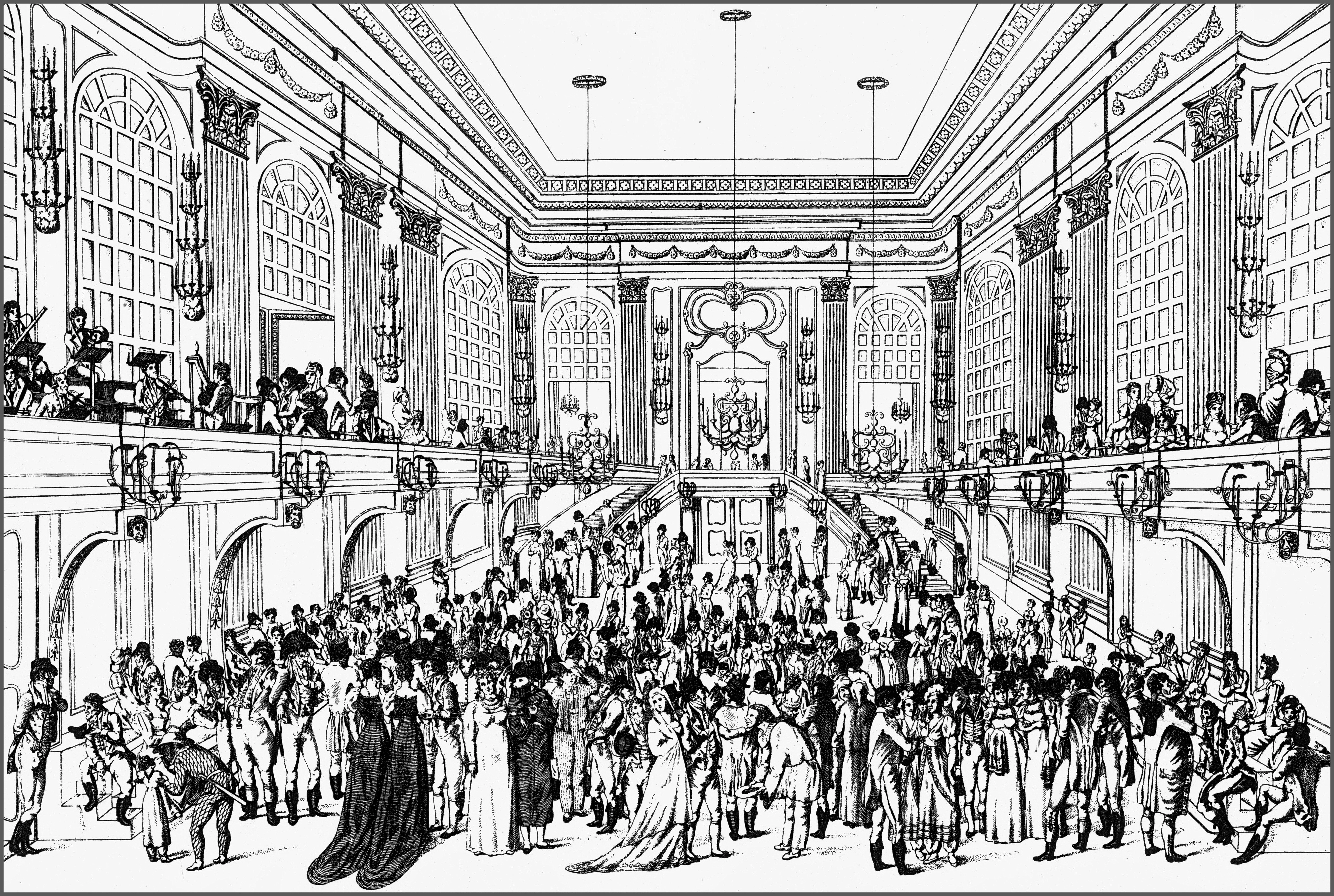The censors kept a close and wary eye on the content of performances, though their efforts tended to be focused on plays rather than musical works. As the writer Franz Grillparzer put it: "The censor can't do anything about musicians. If only they knew what you were thinking about when you were writing your music!” (Entry by Franz Grillparzer in one of Beethoven's conversation journals).
However, this was not to say that musical performances were necessarily apolitical, and a number of Beethoven's compositions referred to the political events of the time. For example, his 1813 work “Wellingtons Sieg oder die Schlacht bei Vittoria” (Wellington's Victory, or the Battle of Vittoria), op. 91, captured the patriotic mood of the time and received rave reviews when it premiered on 8 December of that year. One critic said “you could hear the French and British armies approaching” when you heard it.
However, the authorities took the view that the primary purpose of theatre and music was to entertain audiences, and performances were major social occasions that were eagerly reported by the press.
Many theatres and performance venues were privately owned, especially in the suburbs. In the city centre, on the other hand, the royal court's theatres, specifically the (old) Burgtheater on Michaelerplatz and the Kärntnertortheater, stole the limelight.

